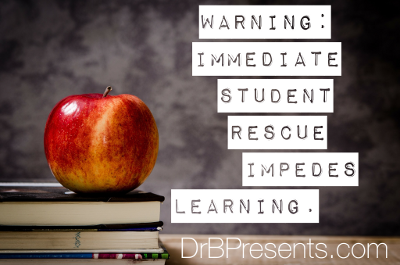by Kelly Beischel PhD, RN, CNE
She asked me. “How will they benefit?” And I thought “Quit with the freaking questions and just give me the answer, dammit!” And then I laughed.
And laughed. And laughed. I laughed so loud that my dog looked at me and slunk away. Let me explain…
I’m in a solo-preneur Facebook group
where we often help one another when we’re stuck or are blocked in our thinking. I was h aving a block in coming up with a cool title for my incivility teleseminar. So, I posted a request for help to name the teleseminar.
aving a block in coming up with a cool title for my incivility teleseminar. So, I posted a request for help to name the teleseminar.
Rather than giving me an answer, Christina, one of the members of this Facebook group relentlessly asked me questions about how the participants would benefit from attending the teleseminar, what would they gain from knowing the signs of bullying etc.
I laughed at my “just give me the answer” response because Christina was simply doing her job as a coach, asking me questions until I gained clarity.
That’s what teachers do too.
We coach, right? We ask questions until students gain clarity. And then my next thought? “That is exactly what our students are thinking – if not saying.”
“Just tell me already.” “Just give me the answer.” We’ve all heard it from our students. And what do we do? We readily complain to one another about it. Sometimes we even call it laziness, right?
- Is it laziness? Well, it could be. Thinking and problem solving IS hard work.
- Is it fear? It could be. They might be afraid of giving the wrong answer. They might not know how to problem solve for the right answer.
But those aren’t even the important questions.
The important question is …
Do we give into it? Do we ask a question and patiently wait ….. and wait? Or in that awkward silence do we jump in and act like a lifeguard to rescue our students from discomfort.
The magic of waiting
During that awkward silence is where the magic happens.
It’s while they’re thinking about the question or working out the problem that their development occurs. This is where students stretch their minds. This is where they grow.
Do you know the coolest part of this? Their success at answering the question fires up the dopamine in their brain. And we know that dopamine is responsible for “mediating processes from feeling pleasure to memory formation.”
Their knowledge grows. Their confidence grows.
Just think. All these gains simply from the act of waiting, for allowing for their success in answering your question. That’s a Win Win in my book.
Try it. And you’ll see.
You’ll move them from dread to determination. From “Just give me the answer” to “Bring it on.” And when isn’t that a great thing?
Back to my Facebook request…
After laughing so hard, I took a walk and thought about Christina’s question. “How will the participants benefit from attending my teleseminar?” And do you know what? The clarity I gained about my objectives for the teleseminar grew in direct proportion to the time I spent working on answering her question.
If Christina had spewed out the answer, if she had suggested a title without asking questions, she would have robbed me from my growth. Thanks for waiting for me to catch up, Christina.
How long do you wait for students to answer?
In your next class, ask a question and then time yourself before you cave and give the answer. I bet it isn’t as long as you think. No kidding. Really do try it. Challenge yourself.
Ask a question and then take a step back. Lengthen the wait time. Give them time to grow. Question and repeat.
How long do you wait? What is your return on the investment of wait time? Please leave a comment below.

Comments
Add Comment